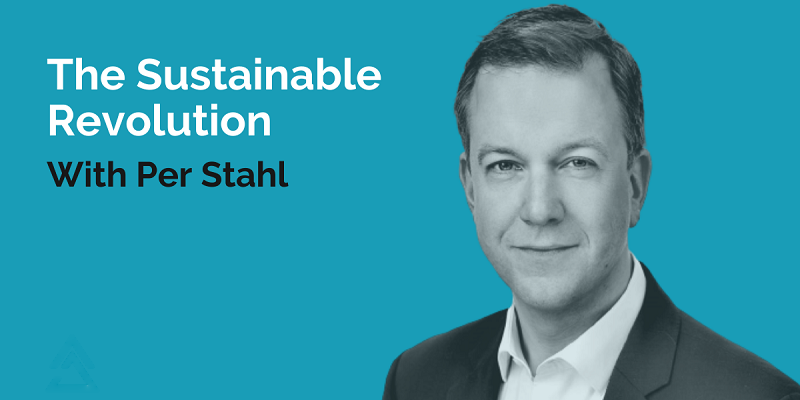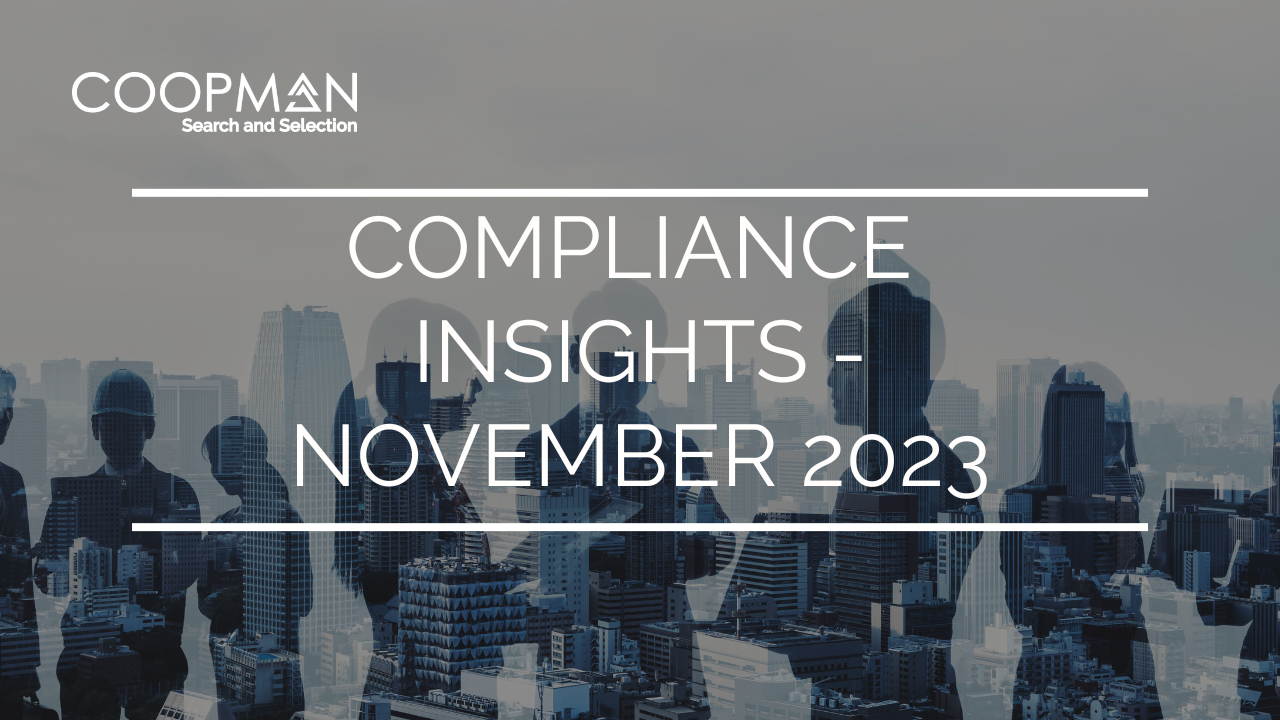In our first podcast episode in series 1 of “Conversations With Coopman”, sustainable finance professional, Per Stahl joins co-hosts Andrew Murphy and Mark Fallon to discuss sustainability and the corporate world.
Per is a passionate operator and advocate for all major areas relating to the sustainable movement and has been active in this space since 2008. He has acted as a financer, investor, corporate advisor and strategy consultant across the spectrum with over 2 billion in capital deployment as an investment principle.
In this episode, Per covers the demand for sustainable finance, outlines what opportunities are available in sustainability both abroad and in Ireland, and what needs to be done at a corporate level to make further progress in the area.
Key takeaways from the conversation include:
1) THE DEMAND FOR SUSTAINABLE FINANCING
Sustainability has moved centre stage in all aspects of the corporate world in the last number of years, as we continually search for ways to sustain a growing population in which more people live in middle class globally, accustomed to the western consumption model. In addition to other key players such as governments, the finance community is integral in thrusting society towards a cleaner way of life, and the deployment of capital and resources to projects in this space is paramount.
Since the credit crunch of 2008, there has been a shift in finance, from making money from money, to making money from making something good such as renewable energy. Large institutions, pension funds and fixed incomes have now pivoted to putting their vast resources into funds that support sustainable initiatives.
The influence of environmental, social, and corporate governance (or ESG) is becoming apparent, as huge inflows of funds make their way into liquid markets, leaving the fossil industries. These inflows and recovery funds mean more resources are available for entrepreneurs and companies operating in this space, and whilst it can be argued that Covid-19 has impacted the rate of progression, a case can be made that, in fact, it acts as a catalyst for further financing going forward as people have had a chance to take stock of where to direct money.
In corporate institutions, the sharing of knowledge is less common so there is increased competition to secure the financing of high-quality projects with attractive yields and quick turnaround of return on investment. This lack of sharing at the corporate level is countered by the more thematic investment occurring within private offices, where knowledge sharing is more evident and creating more demand within those private networks.
2) THE OPPORTUNITIES IN SUSTAINABILITY
Sustainability is seen as both a risk mitigation exercise and an engine for innovation, and it is important that innovation continues to work alongside regulation. Innovation has benefited greatly from government subsidies which have aided the sustainable sector in finding new ideas and better ways to eliminate waste or remove carbon from the environment.
One example of this is plastic, where a transformation of the by-product of plastic consumption is used to generate energy. This is achieved through the marriage of engineering, finance and how society works, the latter framed by the regulation aspect.
There are a lot of EU funded projects coming to fruition and the opportunities are present for active players to get involved in these projects at an early stage, where the returns are greatest and the need for financing is at its most critical.
Furthermore, there is plenty of opportunity at the community level and this community theme is becoming increasingly popular and important. Community grid solutions, in particular, is a field that is excelling fast, and the benefit of these systems is that they allow communities to share energy that is stored between themselves, reducing the need for expensive infrastructure upgrades. €1.3 billion has been funded by the EU to such a project in Limerick, which is going to be a test bed to find a blueprint for cities all around Europe.
3) HOW TO ACHIEVE FURTHER PROGRESS IN SUSTAINABILITY
The most obvious place to start is the existing disconnect between investors and end users. Many companies may not currently see the importance of sustainability and so, are committing minimal time and effort to such matters. Granted leaders within these corporations have wide reaching roles and responsibilities and have a lot to think about outside of sustainability issues, but as it becomes apparent how capital flows have an outright effect more than the cost of capital, it will begin to sink in as they start to see the negative side of their inaction.
4) IRELAND’S PERFORMANCE IN SUSTAINABILITY
Ireland is lagging when it comes to its performance in sustainability (granted that other EU countries are perhaps also behind), however, there is a significant silver lining which is that Ireland has the playbook at its fingertips. The mistakes have been made elsewhere, such as the collapse in the renewable energy market in Spain which left billions in limbo or the teething problems of renewable energy grids in Germany which could not withstand the volume of energy produced and resulted in a negative energy price. Ireland can learn from other countries and avoid making similar errors.
The cost of sustainable initiatives has reduced massively, which means that Ireland can show on a small scale what can be done efficiently, and this can then be replicated further afield. There is an opportunity for Ireland to lead with their sustainable resources and to do it profitably.
TO WRAP UP
Uncertainty always slows things down and without a doubt, Covid-19 has had an impact, with supply chains under immense strain or missing. Finding a response to what is a global issue is also no easy task, however Per believes genuine change can be achieved if as a collective we put our minds to it. There is a huge demand for good people in the sustainable sector and if synergies between stakeholders can be found, it will be the catalyst for funding which will put talent to work in driving change. Ultimately, linking innovation with capital and doing it in a way where stakeholders are aware and understand how to drive this to take sustainability to the next level.
Listen to “The Sustainable Revolution With Per Stahl” on Spotify, Apple or Anchor now, or sign-up to receive the latest podcast episodes straight to your inbox.
If you are interested in taking part in the podcast series, send your details to connect@coopman.ie and we will be in contact soon.








